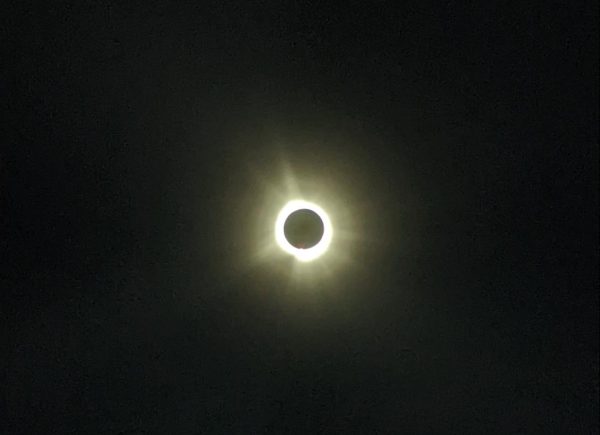Netflix isn’t dying, it’s already dead
April 27, 2022
With the overwhelming proliferation of on-demand streaming services, it was bound that at least some would fall.
Still, I think it’s safe to say that it was unexpected to see Netflix, the mighty forefront of the streaming service craze, dig its own grave.
The company’s stock had already fallen 40% from the beginning of the year to April 19, but the ongoing war in Ukraine and recent announcement of subscription price increases caused an additional 35% decline from April 19-20.
After losing hundreds of thousands of subscriptions along with major investments, it’s clear that Netflix is taking its final desperate shots in the dark to stay afloat. Frankly, it’s too late.

“Stranger Things,” one of Netflix’s most popular original series, will leave large shoes to fill after it completes its final two seasons.
As other streaming services such as HBO Max, Hulu and Disney+ entered the game, Netflix’s only grip on its subscribers were Netflix Original movies and series.
For a bit, it worked. For proof, look at the Netflix Original giants, “Stranger Things” and “Orange is the New Black.”
However, for the past couple of years, Netflix has been swinging the cancellation axe a little too carelessly, pulling the rug out from under viewers of gone-too-soon shows like “The Society,” “The OA” and “I Am Not Okay With This”.
It seems that if a series is not an immediate titan-tier show, it gets sent to the chopping block.
Although I’ve been rooting for Netflix since its DVD rental days, the amount of cancellations that have taken place make me weary of starting to watch a new Netflix original just to be left with more loose ends.
Social media posts surrounding Netflix show that I am not alone in this frustration.
“Maybe Netflix lost subscribers [because] it keeps raising prices while canceling viewers’ favorite shows after like [two] seasons,” Twitter user Wagatwe Wanjuki (@wagatwe) posted on April 20.
Some users also noted Netflix’s lack of concern about how engaging a show is and how long it lasts.
“They’re not bothered about the longevity or quality of their shows,” Twitter user Eric Slapton (@Dodge_10) posted. “They just want it to be trending on Twitter for a few days [like] Tiger King and Squid Game [were].”
This frustration, combined with the recent announcement that Netflix will be raising subscription fees and cracking down on password sharing, will probably be enough to slowly yet surely drive customers away.
Although Netflix currently still has the most subscribers of any streaming service, these major losses and the expected loss of two million subscribers between April and June are sure to put the future of the company in question.
Furthermore, the biggest attraction the company has, “Stranger Things,” is set to end in two seasons without any foreseeable series of the same magnitude to replace its reign.
Investors and content providers are also likely to see the risk of investing or selling licensing rights to Netflix in this time of uncertainty and move on to other services.
Netflix’s new subscription models, including the higher rates of the standard model as well as a cheaper subscription that features ads, might be able to squeak by. Still, it’s going to be clear whether that’s actually attainable within the next few months.
However, increasing subscription fees alone isn’t enough to save the company. For a company that is mainly dependent on its original content, Netflix needs to focus on creating series that are quality and can remain engaging over several seasons.
The window for redemption is already short, but only time will tell if the cancel-crazy reputation Netflix has made for itself means it’s already too late.


















